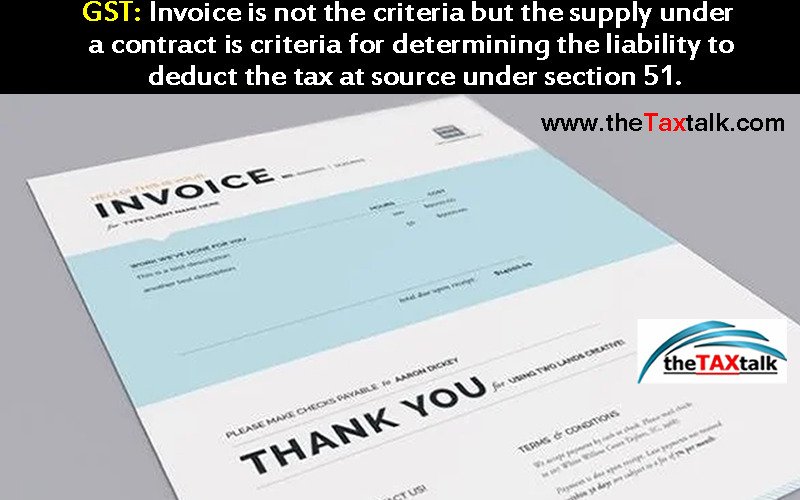![]()
GST: Invoice is not the criteria but the supply under a contract is criteria for determining the liability to deduct the tax at source under section 51.
IN THE AUTHORITY FOR ADVANCE RULING, KARNATAKA BENCH
RAVI PRASAD M.P. & MASHHOOD UR REHMAN FAROOQUI, MEMBER
Udupi Nirmiti Kendra, In re
AAR No. KAR ADRG 30/2021
8 June, 2021
Represented by: Ramachandra Bhat, Chartered Accountant and Duly Authorised Representative
ORDER


